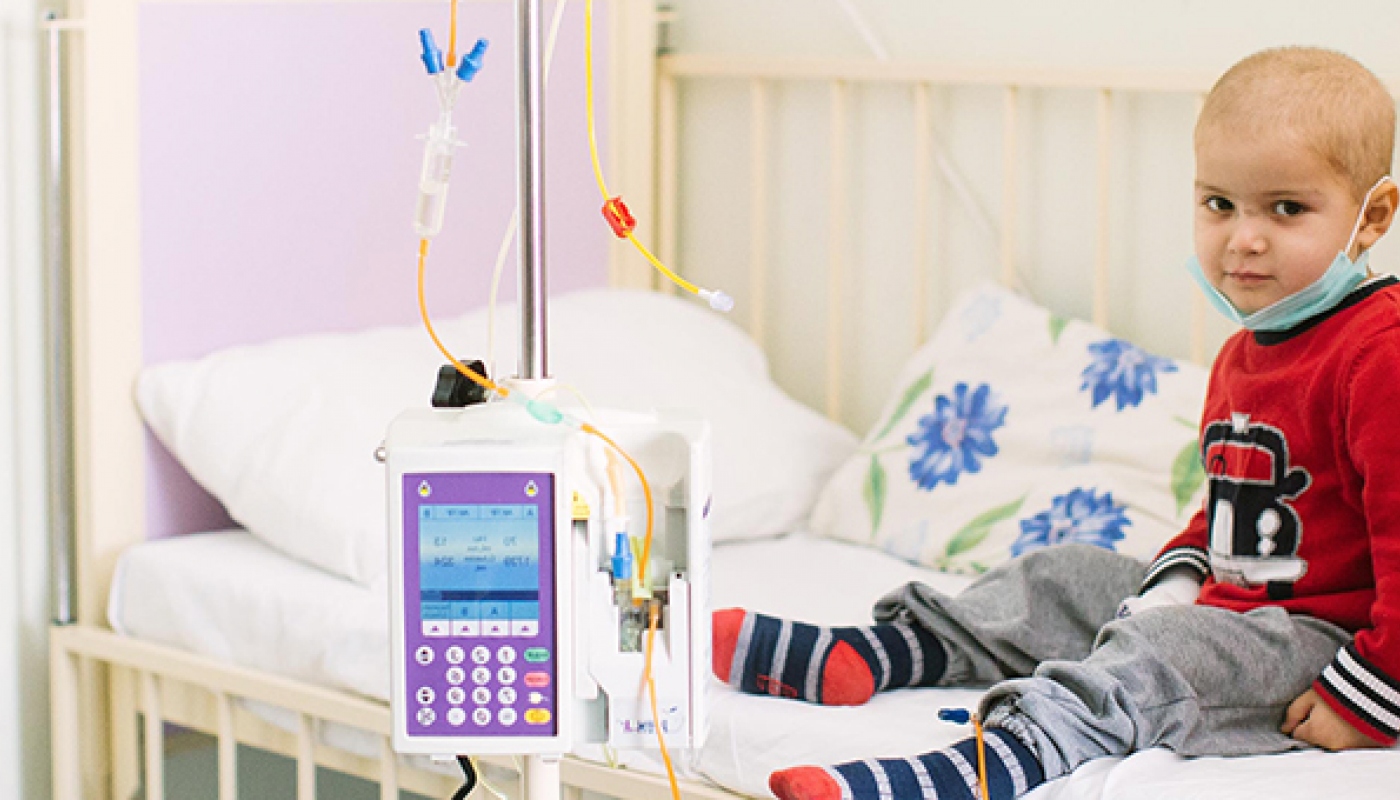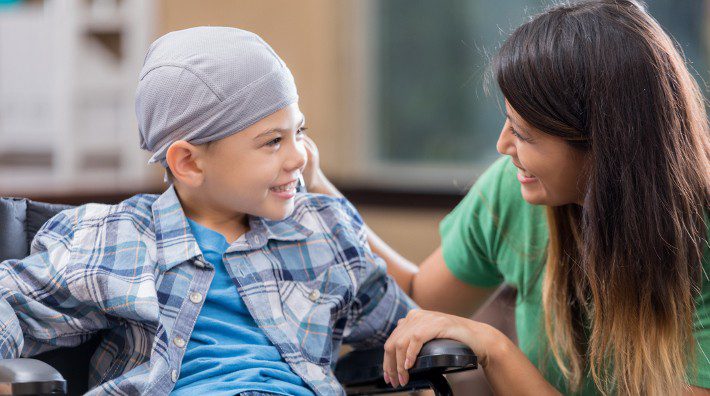Cancer In Children Symptoms – The Early Signs Of Cancer In Children rarely complain about cancer. Even if they do, their parents usually dismiss it as nothing to worry about. But even though the signs may not be obvious, it is important to look for them.

Cancer usually starts in children between the ages of five and ten. Most of the time, it doesn’t cause any symptoms until it’s too late. Children are often diagnosed with cancer at a very young age. Even though most children survive, many experience physical and emotional trauma. In addition to the trauma, children often face a long recovery. If they are lucky, they may have a second chance to fight the disease. However, children with cancer often have a hard time recovering. Cancer symptoms in children vary depending on the type of cancer and its stage. Sometimes, the symptoms can be difficult to spot.
However, knowing the signs and symptoms can be important for early detection. This way, doctors can start treating the child immediately and avoid further complications. Cancer is an incredibly serious disease that can affect any body organ. As such, it’s not surprising that it can also affect children. While cancer in children can be more difficult to diagnose, there are some warning signs that parents should look out for. It’s scary to imagine that your child could have cancer, especially when you see the symptoms that appear in adults. we’ll take a closer look at some of the symptoms children might experience with cancer. We’ll discuss what the possible causes are, as well as what steps you should take to seek help.
Cancer In Children’s Symptoms
Most children who get cancer are usually under the age of 3. This includes infants and toddlers. Cancer in children is quite rare. It’s considered a rare form of cancer.
This means that most people who get cancer in childhood are adults. Some of the most common cancers in children include leukemia, lymphoma, and brain tumors.
Here are some of the most common symptoms of cancer in children:
Loss of appetite
Fatigue
Vomiting
Change in bowel habits
Persistent cough
Shortness of breath
Decreased energy
Pain
Swelling
Fever
Unexplained bleeding from any location
Jaundice
Irregular menstruation
Headache
Dizziness
Nausea
Diarrhea
Night sweats
Seizures
The first thing you’ll want to do when you have a child with cancer is to call a doctor.
Children have many types of cancer, and your doctor can tell you more than you could ever imagine about how to treat it.
Most importantly, they can tell you symptoms indicating your child has cancer.
There are many kinds of cancer in children, but here are some of the most common ones.
If your child has a fever that won’t go away, or if they have a rash, sore throat, or mouth sores, they may have cancer.
They can also lump their neck or a red or purple spot in their mouth.
Symptoms of cancer in children
Cancer is a scary disease for both children and their families. But even more dangerous than the fear of losing a loved one to cancer is that it is still difficult to detect.
In many cases, cancer is identified too late to offer effective treatment. And in others, the symptoms may be dismissed as simply being a part of growing up.
In this case, the symptoms are just that. They are part of growing up. And while they are normal, it is important to be aware of them and know when to seek medical attention.
Pain is the most common symptom of cancer in children, but sometimes, children can have other symptoms that are not as common.
It’s important to understand that any cancer symptoms in a child are abnormal and should be taken seriously.
We are all aware of the horrible effects of cancer. But did you know that children can also get cancer?
Children who get cancer are often treated differently than adults. They don’t understand the seriousness of their situation and aren’t given the same treatment.
So, the good news is that cancer in children is rare. But that doesn’t mean you can’t get it. Here are the most common signs that your child may have cancer.
If you suspect your child has cancer, talk to your doctor immediately. There are many types of cancer, and knowing which one it is will help determine the next steps.

How can I help my child?
Most people are aware of the early symptoms of cancer, such as changes in eating habits, fatigue, unexplained pain, or swelling. However, some children can develop these symptoms and signs of cancer without having cancer.
This is because children tend to present with vague symptoms, which makes them harder to diagnose.
In addition to having a high incidence of cancer, children have a higher chance of developing cancer than adults. This is because their bodies are still evolving and exposed to many harmful substances, including environmental toxins, radiation, and viruses.
This may result in some of the symptoms being missed by parents or healthcare providers. Parents should be aware of the signs of cancer in their children and should take steps to seek medical care if they notice any of these symptoms.
What causes cancer in children?
Cancer is a very scary word. It’s easy to imagine that children diagnosed with cancer face an uncertain future. This is often true, but children also often have excellent outcomes.
The good news is that children are not as vulnerable to certain types of cancer as adults are. They tend to respond well to treatment and recover quickly.
The bad news is that childhood cancer is still one of the leading causes of death in children.
It isn’t easy to describe feelings when I hear stories like this. I know there’s no way to fix the pain in someone’s life. But it breaks my heart that the world has so much suffering.
This is why I want to share the information I have so that parents can have a fighting chance against cancer. There are some great resources out there if you’re looking for help.
Children can have cancer just like adults. The symptoms of children’s cancers vary slightly from those of adults, but you can still find information here.
When a child shows signs of a disease like cancer, their parents must figure out what’s going on as quickly as possible. The best way to do this is to find a pediatric oncologist with experience treating children with these diseases.

Frequently Asked Questions (FAQs)
Q: Why should parents look out for symptoms of cancer in children?
A: Parents should look out for unusual or changing symptoms in their child. It would help if you were alert for notable changes in behavior, such as not wanting to play, acting lethargic, or having difficulty focusing.
Q: How can you tell if your child has cancer?
A: If you notice unusual changes in your child’s behavior, you should take them to your pediatrician. A simple blood test will usually determine whether your child has cancer.
Q: Are there any symptoms of cancer in children that aren’t noticeable?
A: Sometimes, cancer symptoms in children can be difficult to notice. Your child may look fine, but they may have trouble breathing, which indicates something wrong with their lungs. If you see anything out of the ordinary, contact your pediatrician.
Q: How does cancer in children look?
A: Cancer in children can look very different than adult cancer. Some children have swollen glands, fever, loss of appetite, pain, and lack of energy. Others will not have any of these symptoms but other physical changes. These changes may include skin rashes, yellowing of the eyes, abdominal pain, bruising, and mouth redness.
Q: Does cancer in children always have to be fatal?
A: No. Treatment is based on how much damage has already occurred. Treatment options are based on age, location, and cancer’s extent. A child may not require treatment only in the brain or spinal cord.
Q: Is there anything we can do to prevent cancer?
A: Yes. Avoiding carcinogens is the most important thing. If we all avoided smoking cigarettes and drinking alcohol,
Q: What are some signs of cancer in children?
A: There are several symptoms, such as losing weight, hair loss, or having a swollen belly. It can also show up on X-rays. If a child is younger than five years old, they might not notice their symptoms.
Q: Can an adult tell if a child has cancer?
A: No, you won’t know until it’s too late. You may have noticed a behavior change, like a child who would never do something suddenly starts doing it all the time.
Q: What should a parent look for in a doctor?
A: Parents should look for someone who specializes in pediatrics, cancer, or pediatrics and cancer. Also, the doctor should be current with the available treatments and how they should be used.
Myths About Cancer
Cancer Symptoms usually appear after 1-5 years of age.
Cancer only occurs in children.
Cancer is a genetic disease.
Cancer only affects children.
Cancer occurs when cells divide too fast.
Cancer cannot be cured.
Cancer only affects children.
Children’s cancer is more dangerous than adults.
Cancer in children usually occurs only in the brain, stomach, and lymph nodes.
Cancer in children only occurs once a person reaches puberty.
Cancer in children is easy to treat.
Cancer only occurs in children.
A doctor can only make a cancer diagnosis.
A doctor can only detect cancer symptoms.
Conclusion
I hope you enjoyed reading this article. I’ve been writing these types of articles since 2010. It’s always a pleasure to share my knowledge with others who want to make money online. Cancer is a disease that is scary for many parents. It can be hard to tell whether or not their children have cancer. It can also be extremely hard to understand how to treat it if it is found. The most important thing you can do to protect your children from cancer is to teach them about it. Many symptoms may indicate that your child has cancer, so you must teach them about them. This is a tough one. As I said earlier, symptoms are not very specific.
Several diseases can cause them; some symptoms are more common in children with cancer than others. It’s important to get your child checked out as soon as possible. I’d recommendI’dlking to a doctor and letting them know you’re conceryou’ref you see any unusual behavior or notice your child is missing any of their habits, it’s worth chit’sng out.
